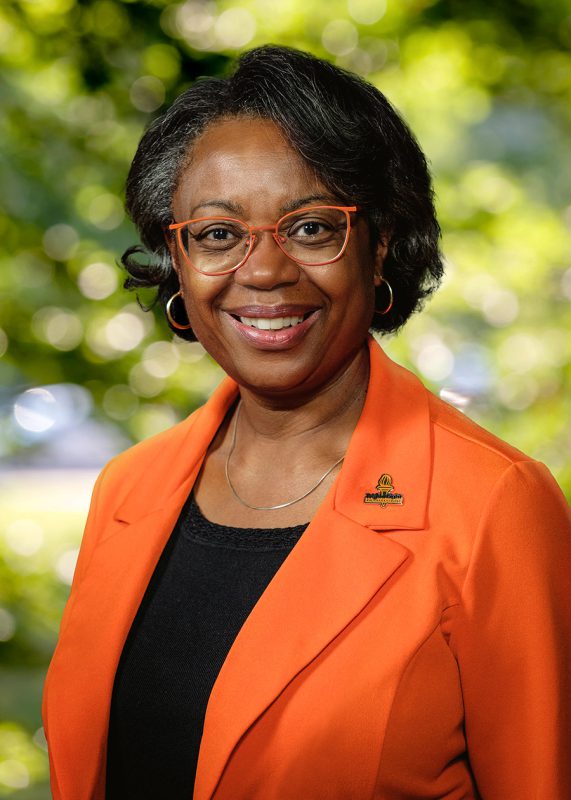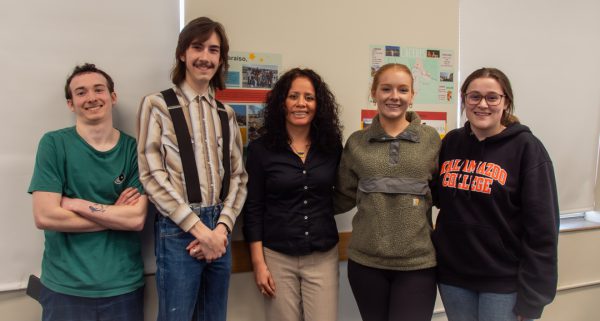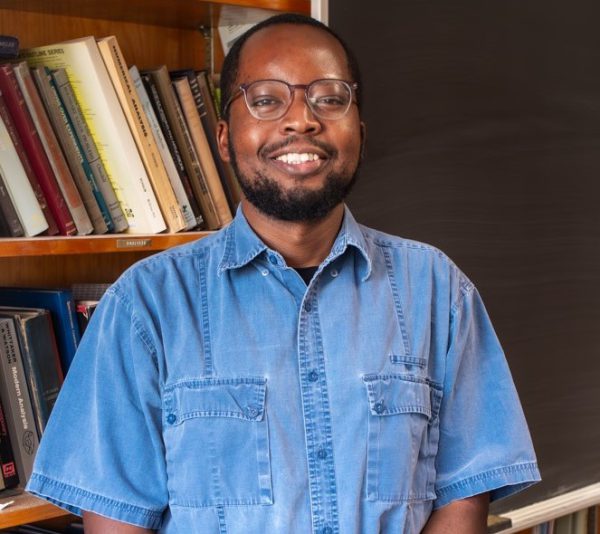Isabela Agosa ’17 knows where Kalamazoo College students can find the right stuff when they need to write stuff.
Agosa, once a student employee at K’s Writing Center, now is its director, supervising the current student employees, with poets, Fulbright scholars, editors and more among them. She admits that she struggled in her early years as a K student, but that makes her better at her job now as she once needed to find her academic footing.
“I’m really appreciative of the struggles I had here because they have allowed me to have a different mindset that I can provide to my students,” Agosa said. “I’m sort of like the gardener who helps the students run the center. My students are gentle, welcoming people who can open up a writing bud and allow it to blossom.”
Her own a-ha moment as a student came when she found poetry at K. In fact, she teaches a Poetic of Love senior seminar each winter term, and Poetry Magazine—the oldest monthly publication to verse in the English-speaking world—will print two of Agosa’s poems in its June 1 edition.




“When I came to K, I wanted to read fiction or maybe write for TV shows,” Agosa said. “And of course, I still have so much passion for that in my heart, but this is where I fell in love with poetry. I truly had never imagined in a million years that I would be a poet.”
Now, she would like to debunk some of the myths she hears about the Writing Center and empower more students to visit and improve their own writing.
Myth No. 1: Writing collaboration is a form of cheating
“We tend to have a deficiency mindset and think that support is only for people who are doing poorly, or we can be individualistic and think collaboration on writing is plagiarism or cheating,” Agosa said. “I think the Writing Center shows collaboration is an intellectual goal on campus. Why else would we all be together if we weren’t a community of scholars? Yes, we can write by ourselves, but we can do it so much faster when we have someone who can talk us through it.”
Myth No. 2: The Writing Center only helps students with classwork
“In the spring, this is our ‘job time’ when people are coming in with cover letters for jobs, grad school or internships,” Agosa said. “One of my pitches to students would be to remember that the Writing Center isn’t just for classwork. We get to explore all types of writing, so you can expect to have someone who’s invested in hearing about you and your work.”
Myth No. 3: I can get better information during my professor’s office hours
“Office hours are a useful dynamic, but they provide something different from the Writing Center,” Agosa said. “Professors can guide you on a certain path or help you understand the class material better, whereas our writing consultants help you understand yourself better as a writer.”
Myth No. 4: Writing Center employees will judge me and my writing
“Many people have baggage with writing because we feel that writing is a reflection of our soul,” Agosa said. “When they come to us with a fragment of their soul, they can feel guarded and nervous. But students can expect that they will be greeted by someone who cares because my staff loves their work. It’s a job and I hope that I model good ways to practice that job. They’re the types who like people and want to talk about writing. You can expect a lot of passion, a lot of enthusiasm and a judgment-free zone.”
Myth No. 5: I should wait to go to the Writing Center until I need help
“I think students feel that they’re not allowed to need help unless the house is on fire,” Agosa said. “Some people view it as a punishment or think it’s remedial. But you can come to the Writing Center just to talk to someone about your work. It’s good at breaking down tasks, especially for anyone who struggles with activation. I think the joy of talking with someone about your writing is universal and useful at any stage.
“I’m always telling prospective students that this is a place run by your peers who have gone through all the things you have. I would really love for them to see the Writing Center not just in a project- or product-driven environment. I want them to get involved in a supporting, nourishing community of scholarship.”
Find the writing help you need
If this isn’t enough to convince you of what the Writing Center accomplishes, you can also hear from Agosa and her team in this recent community reflection titled “Destigmatizing Help: Collaboration in the Writing Center.” Then, schedule an appointment online.
“The Writing Center is the place where I came to maturity and adulthood because our work is so much about learning, reflection and how to ask questions,” Agosa said. “I honestly learned more about syntax and grammar structure through poetry writing, but Writing Center work is about self-understanding and understanding the right questions to ask while communicating your needs. When students struggle with writer’s block, they might not even know what to name it. We look at roadblocks and ask, ‘what is it and how can we approach it?’ You will always feel connected to this place because we form such a strong community, where we learn how to dialogue with people. We make authentic person-to-person connections here because we can’t work on someone’s writing without them.”























